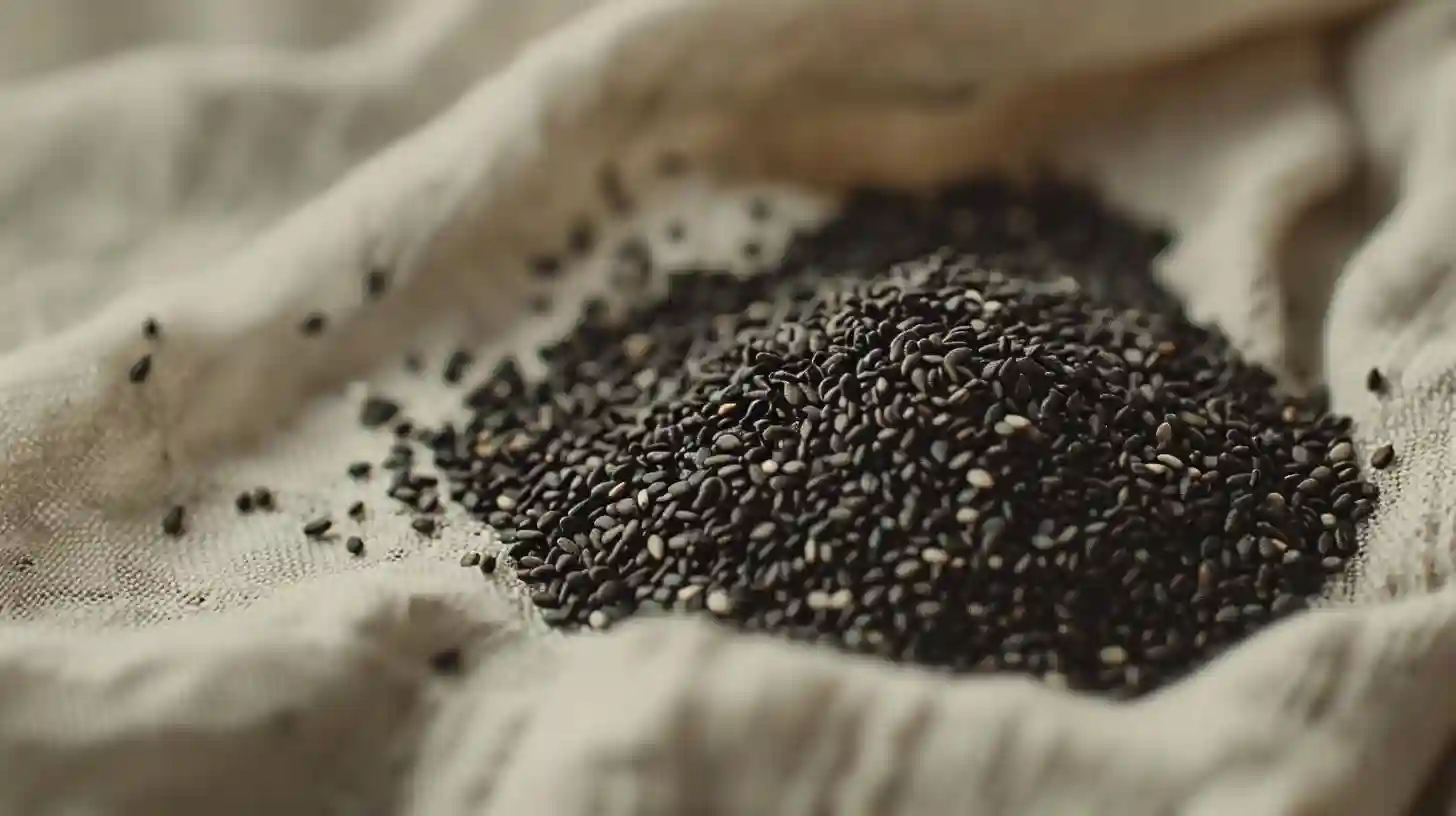
Black sesame seeds have been cherished across civilizations for their distinctive flavor, vibrant color, and numerous health benefits. These tiny powerhouses pack an array of nutrients, and their versatile use in both culinary practices and traditional medicine has made them a staple ingredient in many cultures.
Originating from Sesamum indicum, black sesame seeds are often lauded for their slightly stronger flavor compared to their white counterparts. The seeds are small and have a rich, nutty taste that enhances both sweet and savory dishes. Historically, black sesame seeds have been cultivated for thousands of years. Traces of sesame have been found in the ancient food practices of East Asian, Middle Eastern, and African countries. Combined with their longevity and resilience as a food crop, black sesame seeds offer a testament to their significance and utility in human history.
One of the most notable aspects of black sesame seeds is their dense nutrient profile. These seeds are a repository of essential minerals, including calcium, magnesium, iron, and zinc. They also provide a good source of B vitamins, including B1 (thiamine), B2 (riboflavin), and B3 (niacin). These nutrients are vital for a range of bodily functions. For instance, calcium is essential for strong bones and teeth, while magnesium plays a crucial role in muscle function and the regulation of various biochemical reactions in the body. Zinc is a cornerstone of immune function and wound healing, and iron is critical for the production of hemoglobin, which transports oxygen in the blood.
Another key component of black sesame seeds is their high levels of healthy fats, including polyunsaturated and monounsaturated fats. These fats are beneficial for heart health; they help reduce bad cholesterol levels (LDL) and increase good cholesterol levels (HDL), thus maintaining cardiovascular health. Additionally, black sesame seeds are rich in lignans, particularly sesamin and sesamolin, which are unique fibers known for their antioxidant and anti-inflammatory properties. These lignans contribute to lowering oxidative stress, which is linked to a plethora of chronic diseases including cancer, diabetes, and heart disease.
Black sesame seeds also contain a significant amount of fiber, which promotes digestive health. A diet rich in fiber helps in maintaining regular bowel movements and preventing constipation. Fiber can also be a valuable ally in weight management, as it gives a feeling of fullness and reduces overall calorie intake. Regular consumption of fiber is also associated with lowering the risk of developing type 2 diabetes and improving blood sugar management.
The incorporation of black sesame seeds into the diet can be done in numerous delightful ways. They can be sprinkled over salads, added to smoothies, integrated into bread and pastries, or used in sauces and dressings. In Asian cuisine, black sesame seeds are often found in desserts, such as black sesame soup, black sesame paste, and black sesame ice cream. Their versatility makes them not only a nutritious addition to meals but also a palatable one.
Traditional medicine systems, particularly Ayurveda and Traditional Chinese Medicine (TCM), have long recognized the health benefits of black sesame seeds. In TCM, black sesame seeds are believed to support kidney and liver function, promote hair health, and improve overall vitality. The seeds are considered particularly beneficial for the elderly, as they are thought to nourish blood and enhance energy. Ayurveda, on the other hand, emphasizes their role in balancing the doshas (the body's fundamental bio-elements) and suggests them as a remedy for various ailments related to dryness and debility.
Beyond their nutritional and medicinal uses, black sesame seeds have cultural and symbolic significance in various societies. In East Asian cultures, they are often associated with health and longevity. Recipes using black sesame seeds are handed down through generations, along with the accompanying wisdom on their health benefits. During specific festivals and celebrations, foods featuring black sesame seeds are prepared both as a mark of tradition and for their auspicious connotations.
Modern scientific research continues to uncover the depth and breadth of the benefits associated with black sesame seeds. Studies have investigated their role in supporting cardiovascular health, managing diabetes, and improving bone health. Emerging research also suggests that the antioxidants found in black sesame seeds may have anti-aging properties, potentially supporting skin health and cognitive function.
In the context of sustainability, black sesame seeds present an interesting case. Sesame plants are relatively resistant to drought, making them a viable crop in arid regions where other plants might fail. This resilience is increasingly important in the face of climate change and the need for sustainable agricultural practices. By promoting the cultivation and consumption of black sesame seeds, we tap into an ancient practice that is aligned with modern needs for sustainable and nutrient-dense food sources.
From a culinary perspective, experimenting with black sesame seeds can open up a world of flavor and texture. Their deep, nutty taste can complement both earthy and sweet ingredients. For those new to black sesame seeds, starting with simple recipes such as black sesame-crusted tuna, black sesame salad dressing, or black sesame cookies can be a delightful introduction. As familiarity with the ingredient grows, more complex dishes and fusion recipes can be explored, ensuring that the diet remains both nutritious and exciting.
Black sesame seeds are far more than just a humble culinary ingredient. They are a nutritional powerhouse, a versatile culinary delight, a traditional medicine treasure, and a symbol of cultural heritage. Their rich history and comprehensive health benefits make them an invaluable addition to the contemporary diet. By integrating black sesame seeds into daily meals, one not only honors an ancient tradition but also reaps the myriad health benefits that these tiny seeds have to offer. As modern science continues to explore the full potential of black sesame seeds, their role in a healthy diet seems poised to grow even more significant, cementing their legacy as both a nutritional staple and a symbol of enduring health.